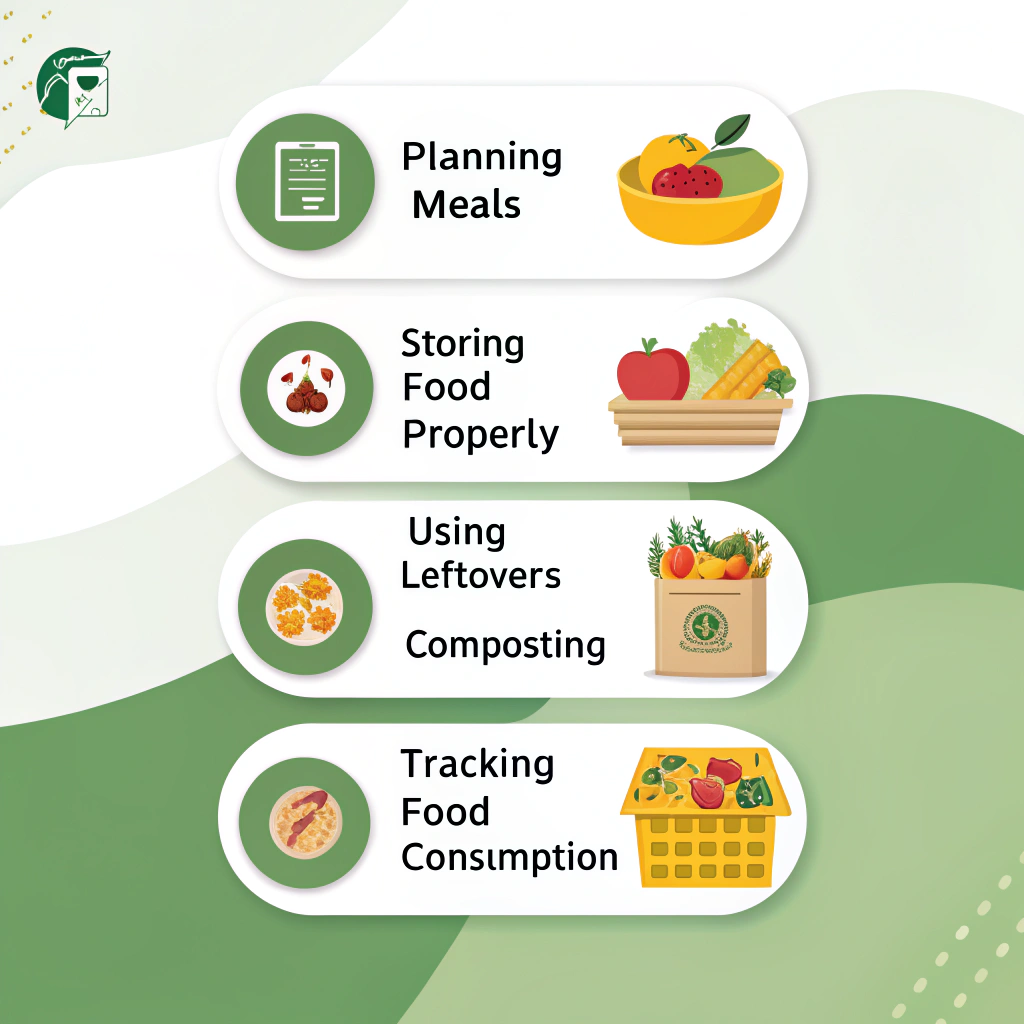Food waste is a pressing issue that affects not only our wallets but also the environment. In a world where millions go hungry, throwing away perfectly good food seems almost criminal. Fortunately, there are practical steps we can take to reduce food waste at home. This article will explore five effective strategies to minimize waste, save money, and contribute to a more sustainable future.
Why This Topic Is Worth Reading

Reducing food waste is not just an individual responsibility; it’s a collective effort that can lead to significant environmental benefits. When food is wasted, all the resources used to produce, transport, and store that food are also wasted. This includes water, energy, and labor. By learning how to reduce food waste, you can make a positive impact on the planet while also saving money.
Moreover, understanding how to manage food effectively can lead to healthier eating habits. When you are mindful of your food consumption, you are more likely to plan meals, eat fresh produce, and avoid unhealthy processed foods. This article will provide you with actionable tips that can transform your kitchen habits and contribute to a more sustainable lifestyle.
Key Highlights or Must-Know Points
- Planning meals can significantly reduce impulse buying and waste.
- Proper food storage extends the life of your groceries.
- Creative cooking can turn leftovers into delicious new meals.
- Composting is an eco-friendly way to dispose of food scraps.
- Educating yourself and your family about food waste can foster a culture of sustainability.
5 Ways to Reduce Food Waste at Home
- Plan Your Meals
Meal planning is one of the most effective ways to reduce food waste. By creating a weekly menu, you can buy only what you need, minimizing the chances of food spoiling before you have a chance to use it. Start by checking your pantry and fridge to see what you already have, then create a shopping list based on your meal plan.
- Store Food Properly
Understanding how to store food can greatly extend its shelf life. For example, keep fruits and vegetables in the right compartments of your fridge, and store bread in a cool, dry place. Use airtight containers for leftovers to prevent spoilage. Labeling items with dates can also help you keep track of what needs to be consumed first.
- Get Creative with Leftovers
Instead of tossing out leftovers, think creatively about how to repurpose them. For instance, leftover roasted vegetables can be added to a frittata, or stale bread can be turned into croutons. Not only does this reduce waste, but it also encourages culinary creativity.
- Compost Food Scraps
If you do have food scraps that can’t be used, consider composting them. Composting not only reduces the amount of waste sent to landfills but also creates nutrient-rich soil for gardening. Many cities offer composting programs, or you can start your own compost bin at home.
- Educate Yourself and Others
Finally, educating yourself and your family about the importance of reducing food waste can create a culture of sustainability in your home. Share tips and tricks with each other, and involve everyone in meal planning and preparation. The more aware everyone is, the more likely you are to make conscious choices that reduce waste.
Extra Tips, Notes, or Warnings
- Check Expiration Dates
Regularly check the expiration dates on your food items. Use the “first in, first out” method by placing newer items behind older ones in your pantry or fridge.
- Buy in Bulk Wisely
While buying in bulk can save money, ensure that you can consume the items before they spoil. Consider splitting bulk purchases with friends or family.
- Use a Freezer
Freezing food can significantly extend its shelf life. If you notice that you won’t be able to consume something in time, freeze it for later use.
Common Questions Answered
What are some common foods that are wasted? Fruits and vegetables are among the most commonly wasted foods, often due to spoilage. Other items include bread, dairy products, and leftovers.
How can I tell if food is still good to eat? Use your senses—look for signs of spoilage, smell for off odors, and check the texture. When in doubt, it’s better to err on the side of caution.
Can composting really make a difference? Yes! Composting can significantly reduce the amount of waste sent to landfills and provides valuable nutrients for soil, promoting healthier plant growth.
Final Thoughts
Reducing food waste at home is not only beneficial for the environment but also for your wallet and health. By implementing these five strategies, you can make a meaningful impact in your kitchen and beyond. Remember, every small step counts towards a more sustainable future.
Get Involved
We encourage you to try out these tips and share your experiences with us! Have you found other effective ways to reduce food waste? Leave your feedback or questions in the comments below. For more wonderful content on sustainability and lifestyle tips, check out Mind of Griff.
Leave a Reply